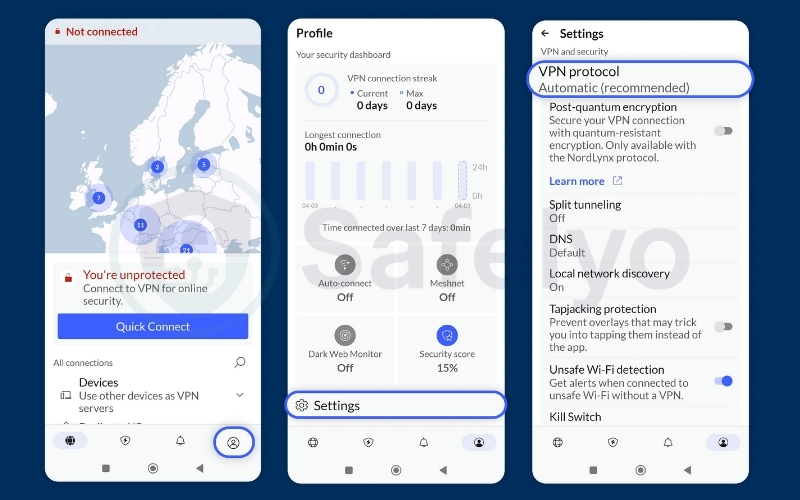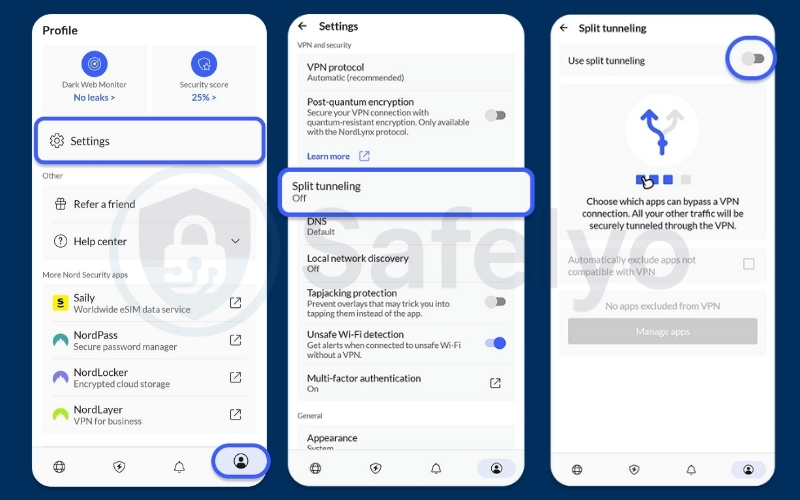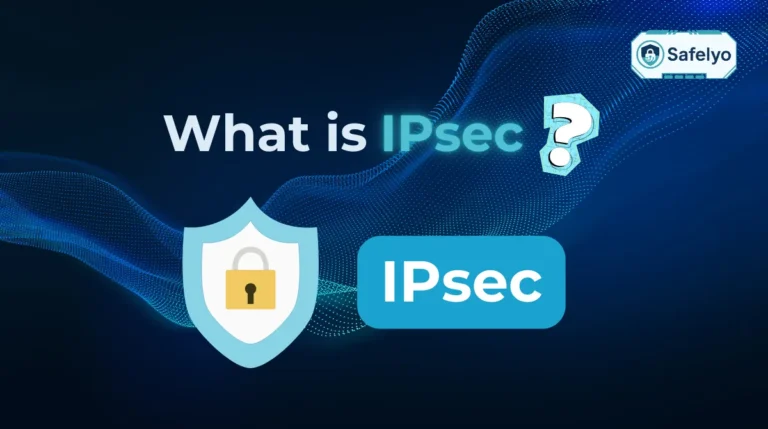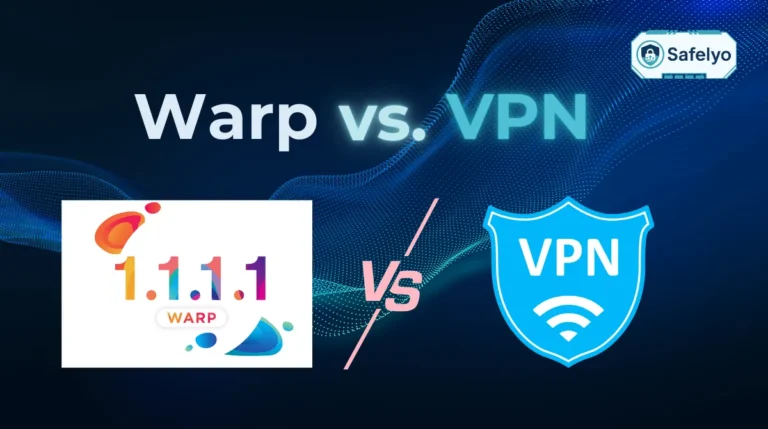Does VPN use more data? Yes, a VPN uses more data. This is due to “encryption overhead.” It’s a common concern, especially if you use a VPN on a limited mobile data plan. This overhead is the extra data needed to encrypt and secure your connection.
Key takeaways:
- VPNs add a small data increase (5-20%) called “encryption overhead.”
- The VPN protocol (like WireGuard) and encryption level affect this data use.
- This extra data is usually not noticeable on Wi-Fi but can impact mobile data caps.
- You can monitor and reduce this usage by choosing efficient protocols.
1. Does VPN use more data?
Yes, a VPN does use more data. This increase is a direct result of “encryption overhead”. It is the small data “cost” for securing your connection.
Think of your data like a postcard. Normally, anyone can read it. A VPN puts that postcard inside a secure, armored envelope. That envelope makes the package slightly heavier and larger. This protective layer is itself a small amount of extra data.
This process typically adds 5% to 20% to your total data usage. For most activities, this is a tiny amount.
2. Why does a VPN use more data?
The extra data comes from two technical processes working together: encryption and encapsulation.
First is encryption. To secure your data, the VPN must add small bits of information, called headers. These headers tell the server how to verify, assemble, and decrypt the data when it arrives. This is the “key” to the secure envelope.
Second is encapsulation. The VPN takes your entire data packet (the “envelope”) and puts it inside another, outer packet. This process, called tunneling, is what hides your data from your ISP. This new outer packet has its own set of headers for routing. This “packet-within-a-packet” method is the main reason “does using a VPN consume more data”.
3. Which factors impact your VPN data usage?
Not all VPN connections are equal. Several factors determine the size of the data overhead. As someone who tests different protocols, I’ve observed these minor differences in my own data logs. The protocol you choose can have a noticeable impact.

3.1. VPN Protocols (e.g., WireGuard vs. OpenVPN)
VPN protocols are the “rules” for the VPN connection.
- WireGuard is a modern protocol with a small codebase, making it very fast and data-efficient.
- OpenVPN is an older, highly secure standard, but its complexity adds more overhead.
- IKEv2 is another good choice, especially for mobile, as it balances speed and data use.
3.2. Encryption strength
A VPN using AES-256 (strong) encryption needs slightly larger data headers than one using AES-128 (weaker). This is a trade-off. However, the data difference is tiny and measured in bytes. You should never choose weaker encryption just to save a few kilobytes.
3.3. Network conditions
An unstable connection, like spotty public Wi-Fi, forces data re-transmission. When your connection drops packets, the VPN must resend them to maintain the secure tunnel. This constant re-sending of lost data can add up, consuming more data overall.
3.4. Server distance
Connecting to a server far away can have a minor impact. Your data travels through more “hops” (routers) on the internet. Each hop is a small chance for packet loss. More packet loss means more re-transmission, which uses more data. This is less of a factor than your protocol.
4. How much data does a VPN use for common activities?
The impact of the 5-20% overhead depends heavily on your activity. For some tasks, it is invisible. While for others it can add up.
4.1. Impact on web browsing
Web browsing is a low-data activity. A typical webpage might be 2MB. A 10% overhead adds only 0.2MB, which is unnoticeable.
When just loading text and small images, the extra data is measured in kilobytes. This is why does using VPN use more data is not a concern for browsing.
Read more:
4.2. Impact on streaming video (HD vs. 4K)
This is where the overhead matters most. According to Netflix’s Help Center, their data consumption for streaming is as follows:
- Streaming HD video uses about 3GB per hour. A 10% overhead adds an extra 300MB.
- Streaming 4K video uses about 7GB per hour. A 10% overhead adds an extra 700MB. This is a significant amount if you are on a limited monthly data cap.
Read more:
4.3. Impact on online gaming
Online gaming uses surprisingly little data. It is more sensitive to latency (ping) than bandwidth. Gaming sends tiny, constant packets of information. The overhead on these tiny packets is minimal. Gamers are more concerned with lag, not data use.
5. Does a VPN use more data on mobile or Wi-Fi?
The VPN’s extra data percentage is exactly the same on both mobile data and Wi-Fi. A 10% increase is a 10% increase, regardless of your network.
The difference is not technical. It is about perception and consequences. On your unlimited home Wi-Fi, a 10% data increase is irrelevant. You will never see it or be billed for it.
On a 10GB monthly mobile data plan, that same 10% is highly visible. If you stream one 4K movie (7GB), the 700MB of overhead suddenly uses 7% of your entire month’s data.
This effect can be even stronger when roaming internationally, where mobile data is limited and costly.
6. Can a VPN ever save you data?
Yes, in a few specific situations, a VPN can help save data.
- Case 1 (Ad blocking): If your VPN includes built-in ad blockers, it saves data. It does this by preventing data-heavy ads from loading in the first place.
- Case 2 (ISP throttling): If your ISP is slowing down (throttling) your video streams, a VPN can help. It hides your activity and bypasses the throttle. This restores your full speed but doesn’t technically reduce data.
- Case 3 (Compression – rare): Some very old protocols offered data compression. This is not effective on modern HTTPS web traffic, which is already compressed.
7. How to reduce your VPN data usage
While the 5-20% overhead is small, you can take active steps to minimize it, especially on a mobile data cap. As someone who tests apps constantly, I find the biggest data savings come from two key settings. You can usually find these right in your VPN app’s menu.
7.1. Choose a data-efficient protocol
The best and easiest way to reduce data use is to manually select a lightweight protocol. Go into your VPN app’s settings and look for the “Protocol” menu.
- Choose WireGuard: If this is an option, select it. It is the most modern, fastest, and data-efficient protocol available.
- Use IKEv2: If WireGuard isn’t available, IKEv2 is an excellent, lightweight choice, especially for mobile devices.
- Select OpenVPN (UDP): If OpenVPN is your only choice, select the UDP option over TCP. UDP is generally faster and has less overhead.

7.2. Use split tunneling
If your VPN supports it, enable split tunneling. This feature lets you choose which apps use the VPN and which bypass it.
For example, you can route your browser through the VPN for security but let your data-heavy streaming or gaming apps use your normal connection. This reduces total VPN data use without turning it off.

8. FAQs about Does VPN use more data
Here are quick answers to other common questions about VPNs and data use.
How much data does a VPN use per hour?
The VPN itself doesn’t use data; it adds a percentage (5-20%) to what you are already doing. If you stream 4K video (7GB/hr), the VPN might add 700MB, for a total of 7.7GB/hr. If you browse (100MB/hr), it might add 10MB.
Is WireGuard or OpenVPN better for data usage?
WireGuard is significantly better. Its lightweight code results in much lower encryption overhead compared to the older, bulkier OpenVPN protocol.
Will a VPN use all my mobile data?
No. A VPN will not use data on its own. It only adds a small tax to the data your other apps (like TikTok or YouTube) are using. If you use those apps a lot, the extra VPN data can make you hit your data cap faster.
Do free VPNs use more data than paid ones?
Sometimes. While the encryption overhead is similar, many free VPNs show you ads inside their app. Loading these ads consumes extra data that paid, ad-free VPNs do not.
Choosing a reliable VPN helps you avoid hidden ads and unnecessary background data.
9. Conclusion
Understanding does VPN use more data is key to balancing security with data management. While a VPN does add a small overhead, it is often a worthwhile trade-off for security and privacy.
- A VPN adds a 5-20% data overhead for encryption.
- This is caused by encryption headers and packet tunneling.
- Modern protocols like WireGuard nearly eliminate this overhead.
- The impact is only noticeable on data-heavy activities (like 4K streaming) when on a limited data cap.
I used to notice my VPN used quite a bit of mobile data. After I switched its protocol from “Automatic” to “WireGuard,” my monthly data usage went down a bit. I still get the same level of security, but it now uses less data overall.
Combine efficient protocols with split tunneling for the best balance of security and data savings.
For more simple and practical tech tutorials, explore the “Privacy & Security Basics” section at Safelyo.












